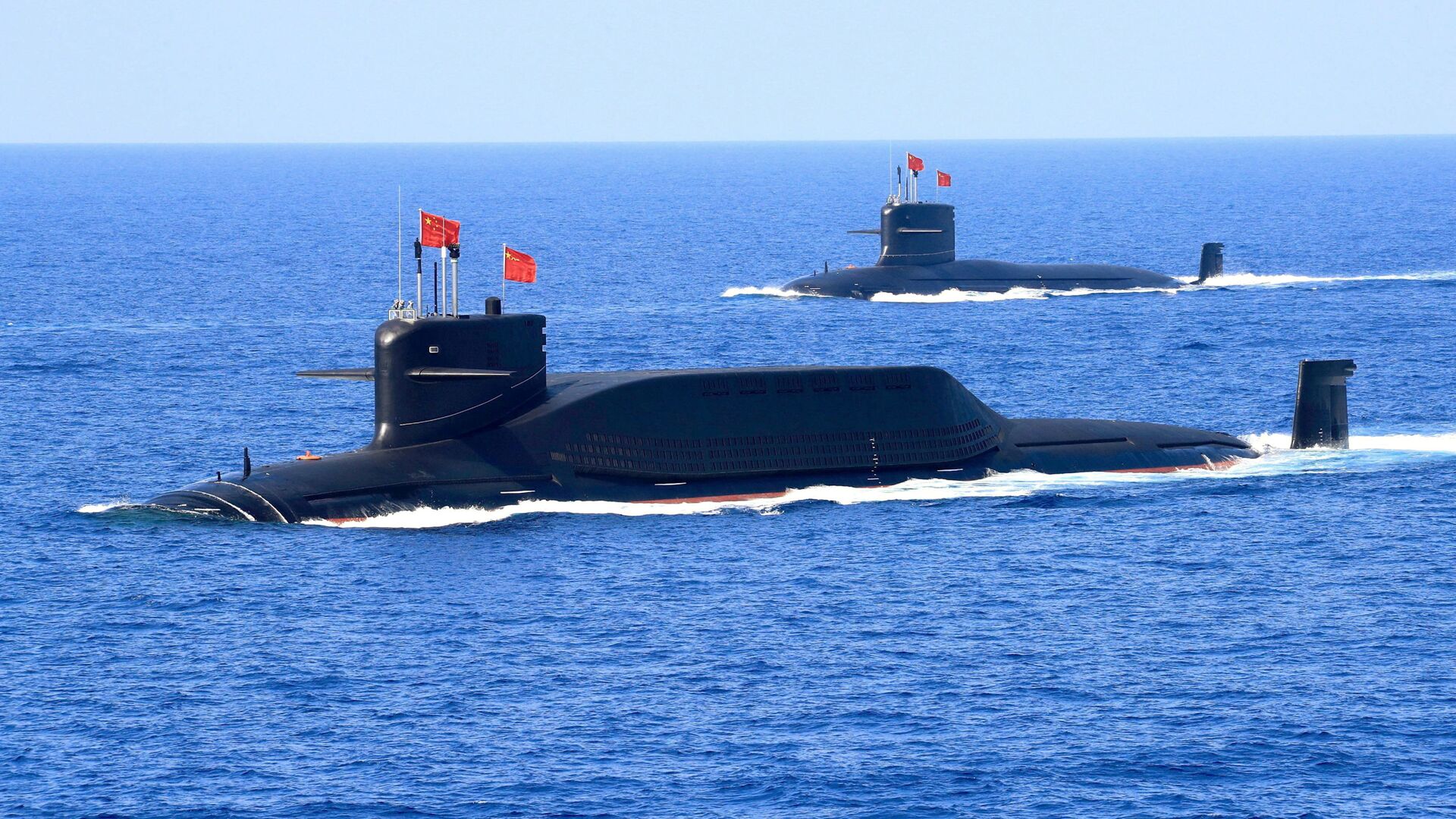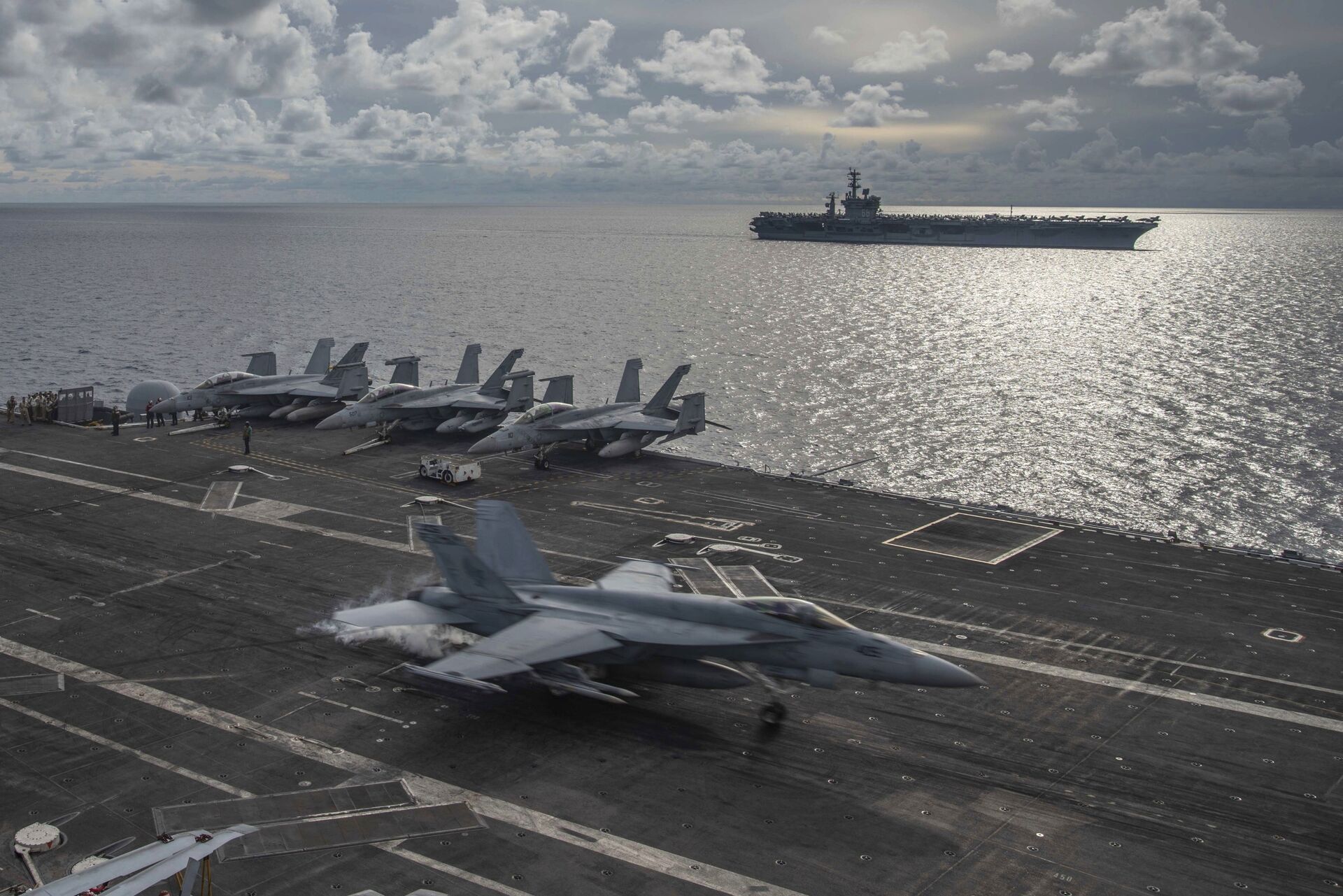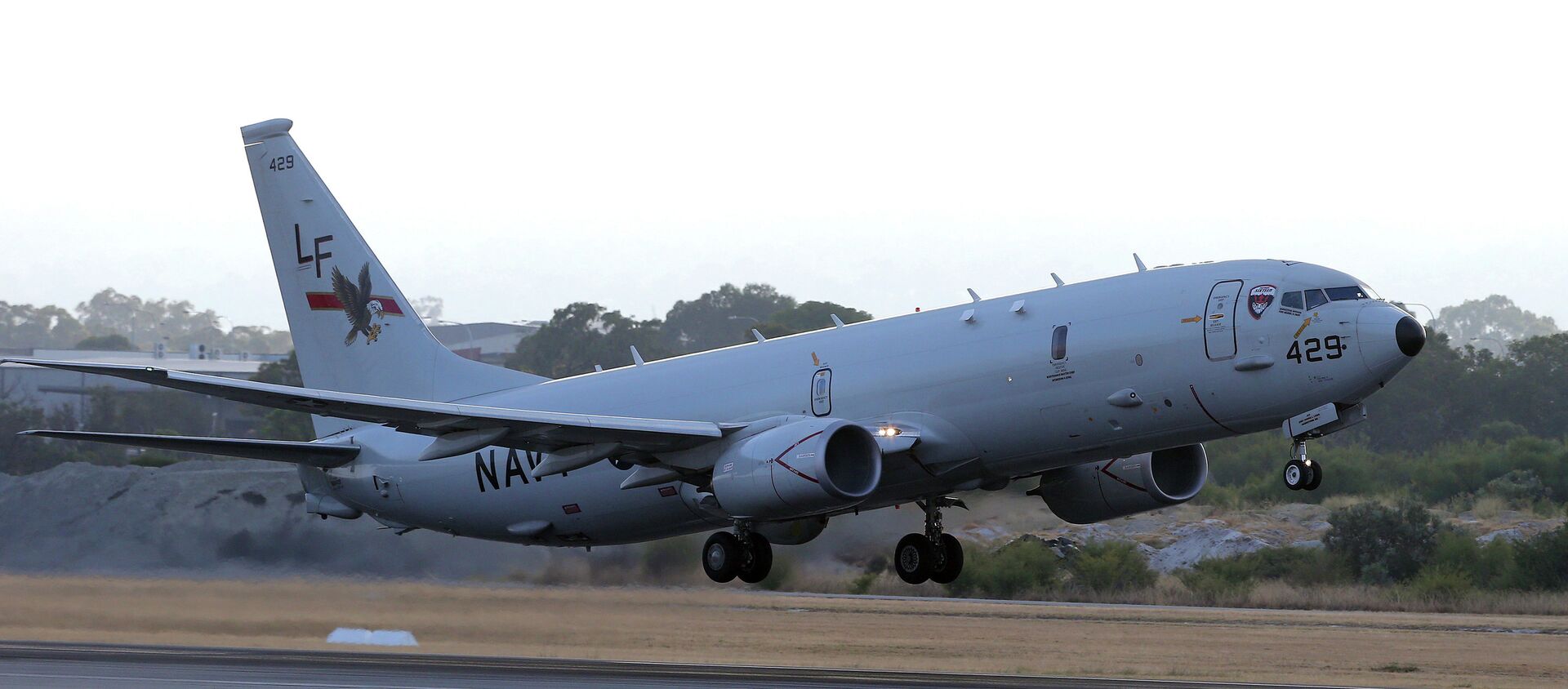China Slams US 'Bullying' as Kamala Harris Accuses Beijing of 'Coercion' in South China Sea
10:08 GMT 24.08.2021 (Updated: 13:22 GMT 06.08.2022)

© REUTERS / CHINA STRINGER NETWORK
Subscribe
Beijing has repeatedly insisted that its military installations in the South China Sea are of a "defensive" nature and are primarily used for scientific research and maritime safety programmes.
The US is using "rules-based global order" rhetoric in order to maintain its "bullying" and "hegemonic behaviour", Chinese Foreign Ministry spokesman Wang Wenbin said in a statement on Tuesday.
"In order to defend 'America first', the US can arbitrarily smear, suppress, coerce, and bully other countries without paying any price. This is the order the US wants […]. But who will believe them now?", Wang said.
He additionally touched upon the ongoing US troop withdrawal from Afghanistan as an example of Washington's "selfish" foreign policy. The pullout led to the Taliban* significantly increasing its military activities in the country, which culminated in the insurgents seizing the capital Kabul on 15 August and declaring "the Islamic Emirate of Afghanistan" shortly thereafter.
Harris Bashes Beijing Over S. China Sea
Wang's statement comes after US Vice President Kamala Harris lashed out at Beijing over its drive to claim more South China Sea territories, also pledging Washington's support for American its allies in the region.
In a major foreign policy speech in Singapore on Tuesday, Harris argued that "Beijing continues to coerce, to intimidate, and to make claims to the vast majority of the South China Sea" and that "Beijing's actions continue to undermine the rules-based order and threaten the sovereignty of nations".
"These unlawful claims have been rejected by the 2016 arbitral tribunal decision, and Beijing's actions continue to undermine the rules based order and threaten the sovereignty of nations", the vice president, who is on a week-long tour of Southeast Asia, added.
She was apparently referring to a UN arbitration against Beijing's territorial claim to the so-called "nine-dash line" covering most of the South China Sea, initiated by the Philippines in 2013.
Beijing refused to acknowledge the tribunal's decision, declining to withdraw its forces from the area after the final ruling in 2016 stated that China had no historic rights to claim the "nine-dash line".
During Tuesday's speech, Harris also stressed that the US "stands with" its regional allies and partners in the face of alleged threats from China.
Beijing Calls US Biggest Threat to South China Sea Security
Her remarks come a few weeks after Dai Bing, China's deputy envoy to the UN, scolded US Secretary of State Antony Blinken over his claims that Beijing is responsible for the "dangerous" situation in the South China Sea and that the Chinese government's maritime claims to the area are "unlawful".
"The United States itself is not qualified to make irresponsible remarks on the issue of the South China Sea", Dai told a UN Security Council meeting on maritime security earlier in August.
Washington, not Beijing "has become the biggest threat to peace and stability in the South China Sea", the envoy argued, adding that Washington has deemed it has the authority to make judgments based on the 1982 UN Convention on the Law of the Sea despite willfully refusing to join the convention.

In this photo provided by U.S. Navy, an F/A-18E Super Hornet lands on the flight deck of the USS Ronald Reagan (CVN 76), as USS Nimitz (CVN 68) steams alongside in the South China Sea, Monday, July 6, 2020.
© AP Photo / Mass Communication Specialist 2nd Class Samantha Jetzer
Dai argued that "at present, with the joint efforts of China and ASEAN countries, the situation in the South China Sea remains generally stable", with all nations enjoying freedom of navigation and overflight rights "in accordance with international law".
The US, according to the Chinese diplomat, is seeking to "stir up trouble" by sending warships and aircraft to the region to engage in provocations and "drive a wedge" between regional nations.
He spoke after US Secretary of State Antony Blinken accused Beijing of deliberately destabilising the situation in the South China Sea, which Blinken said has seen "dangerous encounters between vessels at sea and provocative actions to advance unlawful maritime claims".
Blinken said that the 2016 tribunal ruling "delivered a unanimous and legally binding decision to the parties" before it firmly rejected "unlawful, expansive South China Sea maritime claims inconsistent with international law".
Beijing lays claims to large swaths of the South China Sea, including the Spratly Islands and Paracel Islands, with the Philippines, Vietnam, Malaysia, and Brunei, as well as Taiwan, having overlapping claims.
Chinese officials have repeatedly urged the US to stay out of the dispute and allow regional powers to sort out their differences independently.
Despite having no claims to the South China Sea territories, the US often sends its military vessels to the South China Sea to fulfill "freedom of navigation" missions. These draw harsh criticism from Beijing who describes such acts as "provocations" that pose a threat to regional security.
*The Taliban is a terrorist organisation banned in Russia and many other nations.



